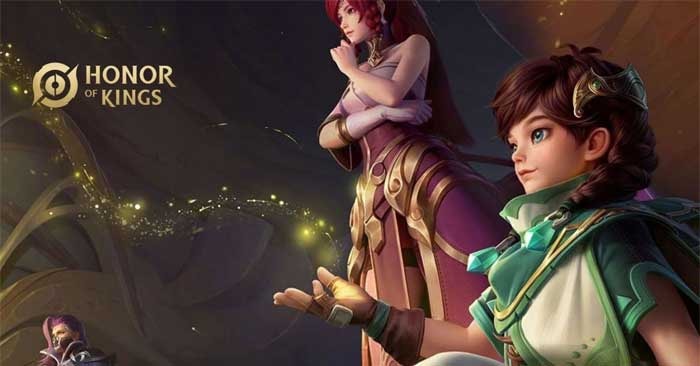China tightens control of online games for children, limits 16 hours/month during holidays
Chinese children will be limited to 16 hours of online gaming time during the month-long winter break, under strict rules designed to prevent addiction.
Tencent Holdings and NetEase, two leading companies in the video game industry in China, have officially announced that they will strictly comply with the regulations issued by the government. Accordingly, during the winter vacation for students starting in mid-January, children's video game playing time will be limited to a maximum of 16 hours throughout the entire vacation.
This regulation aims to minimize the negative impacts of video game use on children's health, learning, and development, while promoting other healthy activities in their free time.
Tencent, the world's largest video game operator by revenue, announced on January 9 that children under 18 will be allowed to play games for up to 15 hours between January 13 and February 13.
.jpg)
Meanwhile, smaller competitor NetEase also introduced a similar policy, limiting minors' video game playing time to no more than 16 hours from January 15 to February 14.
The regulations are in response to government calls for tighter controls on children's use of video games, while encouraging a balance between entertainment and other healthy activities during the holidays.
In August 2021, Chinese regulators introduced strict regulations to limit the time young players spend playing video games, allowing children to play for only one hour a day on Fridays, Saturdays, Sundays and designated holidays.
The decision comes amid growing concerns about video game addiction among young people. However, the regulations do not apply to other online entertainment activities, such as watching short videos, leaving these areas unregulated.
Despite imposing strict restrictions, the Chinese government has gradually shown a loosening of its approach to the video game industry, recognizing the value of popular titles in promoting Chinese culture to the world.
The country’s video game regulator, the State Administration of Press and Publication, approved more than 1,400 titles last year alone. Of these, 1,306 were domestically developed and 110 were from international publishers. This is the highest number of licenses since 2019, reflecting the sector’s growth and strategic importance.
Despite its popular titles, China's domestic video game market still faces major challenges due to its strict licensing and censorship system.
A worrying sign is that revenue from Chinese-developed games will increase by a modest 1.7% in 2024, reaching $35.6 billion. This slow growth has forced many domestic game companies to look to international markets for growth opportunities, as the domestic market becomes increasingly saturated and squeezed.
China's top video game companies have been quick to adapt to strict government regulations aimed at curbing "gaming addiction" among young people.
Tencent and NetEase, two industry giants, have been at the forefront of deploying facial recognition technology, which helps verify player identities and ensures that children cannot use adult accounts to bypass playtime restrictions.
This innovation not only meets the requirements from the government but also shows the commitment of companies in balancing social responsibility and industrial development.

Tencent announced in a WeChat post on January 9 that it has upgraded its monitoring measures to detect and handle any attempts to circumvent the rules during the upcoming holiday. One of the prominent initiatives is the development of a “risk account database” that can identify accounts suspected of being borrowed from adults.
To strengthen control, Tencent has integrated facial recognition technology, ensuring accurate verification of user identities and preventing fraudulent behavior. These efforts underscore Tencent's determination to enforce strict regulations while protecting the interests of children and young people.
Shenzhen-based Tencent first deployed facial recognition technology in 2018 for its hit mobile game Honor of Kings. It was later applied to Peacekeeper Elite, the Chinese version of PUBG Mobile. Following Tencent’s lead, NetEase announced in 2020 that it would integrate similar technology into its games.
However, according to a joint report released last December by the China Audio-Visual and Digital Publishing Association and video game analytics firm CNG, by the end of 2023, China will have recorded nearly 200 million internet users under the age of 18.
However, a quarter of these will still manage to exceed playtime limits by 2024, highlighting the continuing challenge of controlling and managing young people's gaming habits.


